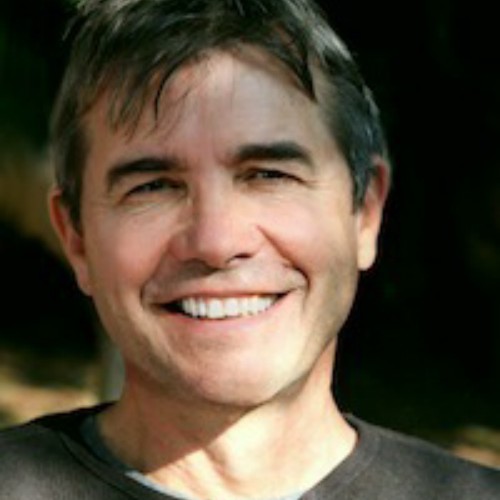We live in profoundly uncertain times. Not fun. But by definition, isn’t evolution about uncertainty? I mean, as long as we stay, think and act the same, we’re going to be pretty certain of the results. We may be miserable, happy, or somewhere in between – but if we keep functioning the same we can, more-or-less, know what happens next.
But try change – not change like moving to soy, almond or oat milk in your coffee – but real change. Remember Galileo? They almost burned him at the stake for saying that the earth was round and circled the sun.
Galileo recanted and survived, but the truth was out. And everything got more uncertain – Columbus, Newton, the Industrial Age, democracy, TV, computers, space travel, the Internet, Einstein, nuclear weapons, climate change — massive uncertainty!
In 2015 I produced the film, In Utero, written and directed by my wife, Kathleen.It’s all about the cutting-edge science from conception through birth. We learned about epigenetics, transgenerational trauma and the growing understanding that mental illness, heart disease, cancer – in fact nearly all psychological and physiological “illnesses” are rooted in much of what happens during those first nearly 10 months in the womb.
As we say on our website, “how you begin, is who you become.”
Given In Utero’s portrayal of these groundbreaking views, it’s had its share of controversy and disdain. And yet it’s also dug deep into the global conversation about human development and behavior. If you scan mainstream media you’ll see that In Utero has had a major impact on how we view pregnancy.
This includes the conclusion that genuine love, during pregnancy (and shortly thereafter), is the most crucial factor in determining a life that is full of possibility. Or conversely, a life that struggles. As Gabor Maté says in the film, “all emotions have a chemical correlate.”
The “love chemicals,” as they are now called in the mainstream media, are fascinating, but what do we do with this information?
Then in 2016, during In Utero’s release in Europe, we came upon a form of psychological self-examination that seemed to bring real-life answers to the psychological and physiological developmental challenges raised by In Utero.
This method was first developed in the 1960s by Bert Hellinger, working with the Zulus in South Africa. Like so much of modern medicine, Hellinger shaped the Zulu’s indigenous processes into a modern form now known in Europe, the U.S. and Asia as Family Constellations.
This work was further refined by Dr. Franz Ruppert at Munich University, who focused on human identity and development, including in utero issues. He called it IoPT (Identity Oriented Psycho-trauma Theory). IoPT draws on current trauma and attachment theory and clinical work and, frankly, can best be explained by quantum mechanics.
While the science and clinical work of IoPT are complex, Dr. Ruppert’s method is simple and elegant: ask yourself, “What do I really want in my life, more than anything?”
From a quantum perspective this question has energy. Beneath the molecular level, everything is energy. As Einstein noted “What we sense as being ‘matter’ is in reality a high concentration of energy.”
Energy radiates outwards and is also absorbed by surrounding energy – that includes you, me, everybody and everything. Welcome to your new world of profound uncertainty!
As the founder of quantum mechanics, Dr, Erwin Schorodinger, noted, “There is only one way out of this dilemma. Dare to look at facts and theories, even when incomplete and partly second hand. Risk being ridiculous.”
Risk being ridiculous.
Like Galileo – risk uncertainty. You have the absolute right to ask for what you want and then see what happens next.
In the case of IoPT, you share “what you want” in a group setting. Dr. Ruppert calls this your “sentence of intention.” The energy (often high anxiety) is picked up by others, which he calls “resonating” and in less than an hour the others (often strangers) will deliver profound and important details about your childhood and even infancy. These details shed light on some of your earliest identity developmental issues, which have made life challenging, often without your previous knowledge.
It’s completely weird.
But remember, the world is round and consists entirely of energy; risk being ridiculous; risk uncertainty and then recant, if you have to. That was my strategy as a filmmaker – be ready to recant. I tried it. The results can be viewed on our website.
Here’s a much shorter video that explains the process:
In the U.S. we call these Identity Development session (ID sessions). They are not therapy, nor a substitute for therapy, but a radical form of self-examination for the Quantum Age.
The Quantum Age…
…in which I increasingly believe we will solve climate change like we circumvented the globe centuries ago in fragile ships; an age in which we clean up our financial woes; the environment; the disparity in wealth; the insanity of war, crime, drugs and disease in the same way that we got ourselves to the moon and back.
In short, an age in which we human beings continue to evolve and – upon resolving our existing problems – move on to new and more interesting challenges.
Sound ridiculous? Maybe. Maybe not.
To learn more about the Institute and Dr. Franz Ruppert’s first workshop in the U.S., click here.


